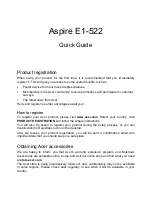
2-2
PCG-SR17/SR17K (UC)
Confidential
2-4. Outline of Service Diagnostics Functions
• Check ROM Information...
Displays the model information, serial number, BIOS and other information saved in the BIOS ROM.
Does not test whether or not the personal computer is normal.
• Battery test...
Tests the battery as to whether the battery is attached or removed, the main power is supplied from an AC power adapter or
not, and the battery is charged or discharged. The test procedure appears on display. Perform the battery test following the
messages on display.
Remove and attach the battery
→
Check (Removal and attachment of battery)
Disconnect and connect the AC power
→
Check (Disconnection and connection of AC power)
Remove and attach the battery
→
Check (Discharge and charge of battery)
• HDD test...
Tests whether the HDD returns a response when communication is established with the hard disk drive. The HDD can be
tested without damaging the HDD data (without formatting the HDD) in this test since the HDD data is tentatively stored
in memory during the test.
If the main power is turned off by mistake while the test is under way, the HDD data can be damaged. Tests the following
test automatically.
1. HDD interface test (Tests whether or not the HDD is recognized)
2. HDD seek test
3. HDD read test
4. HDD write test
5. HDD random read test and random write test (It takes about 2 hours for the 18 GB HDD. This time is a guideline and
changes depending on the model.)
6. Returns to the main menu.
• Keyboard test...
Tests the keyboard. When the “Auto select” menu is selected, the keyboard type in use is recognized from the model
information that is written in ROM when shipped from the factory and the test is executed accordingly. When a specific
keyboard type is selected such as US, UK, or JP, then the keyboard of the selected type is tested. If the model of your
computer is JP and the keyboard type is replaced by either the US type or UK type keyboard, select the keyboard type after
it is replaced.
NOTE:
The “Fn” key can be checked by pressing the “Fn” and “
→
” keys at the same time. Other keys can be
checked by pressing the respective keys.
• LED test...
Tests the LED. This test turns on one LED after another. The person conducting the test must visually check whether each
LED is normal or not. The test starts from the front LEDs (from left to right). Then the LEDs in the center are checked
(from left to right).
NOTE:
The memory stick access test using the LED cannot be run on DOS. Run it on Windows.






































